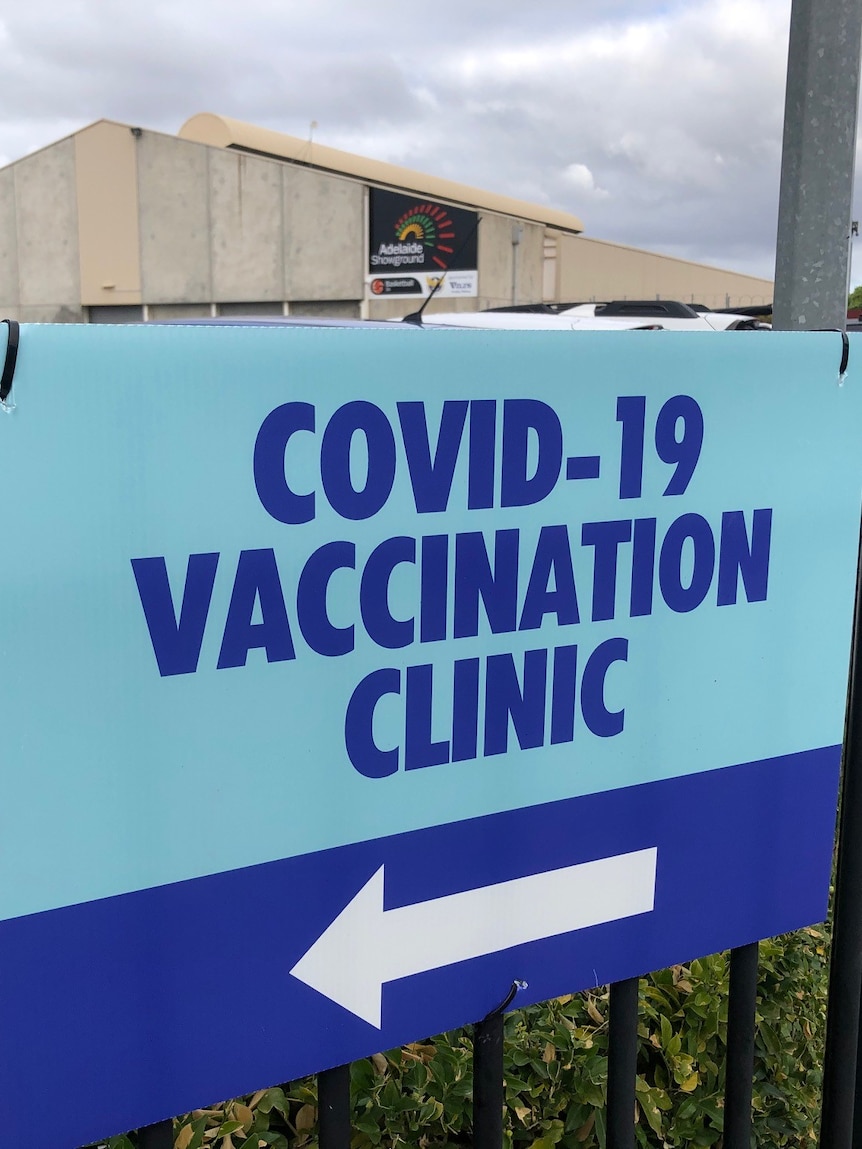The Australian Medical Association (AMA) has expressed severe doubts about the capacity of South Australia’s health system to cope with an anticipated influx of COVID-19 cases once border restrictions are repealed later this month.
Key points:
- SA is currently COVID-free but is preparing to repeal border restrictions on November 23
- The AMA’s Public Hospital Report Card has provided a snapshot into the SA health system
- SA is today expanding its vaccination program with the introduction of booster shots
South Australia is currently COVID-free but is preparing for an increase in cases in the weeks following November 23, when the COVID-Ready plan comes into effect.
The Australian Medical Association’s Public Hospital Report Card 2021 released today has provided a snapshot into the state of the system.
It found patients in SA currently have a “one in two chance” of being seen within half an hour of presenting at public hospital emergency departments, with the number of presentations deemed “urgent” also increasing by 5 per cent.
South Australia’s hospitals have been repeatedly beset this year by instances of ramping and overcrowding.
Almost 400 South Australian health sector workers have been forced to take leave after refusing to be vaccinated against COVID-19 — but Health Minister Stephen Wade has insisted that that will not have an impact on clinical services.
AMA SA vice-president John Williams said hospitals were already operating at “surge capacity most of the time”.
“We know we’re struggling especially in areas of mental health and, again, the report showed that in aged care the number of beds was deficient as well.
“We’re worried about the vulnerable parts of our community.”
Dr Williams said one way of easing pressure on the system was by ensuring the vaccination rate was as high as possible.
“There are lots of people who would probably like to be vaccinated but perhaps just can’t get out of their home or just don’t have the resources to get to a vaccination centre,” he said.
Vaccine booster program rolled out
South Australians who received their second COVID-19 vaccination more than six months ago can receive a booster shot from today.
Frontline healthcare workers, medi-hotel and quarantine staff, and aged and disability care staff and residents — who were among the first cohort targeted for vaccinations — are expected to begin receiving the jabs.
The vaccinations will be administered at the state government’s mass vaccination clinics.
Premier Steven Marshall said from December 1, booster shots would be opened up to all South Australians aged 18 or over — to be administered at least six months after their second dose.
Those seeking boosters will receive Pfizer, regardless of which vaccine they previously received.
“There’s been a lot of questions, queries and concerns about a booster shot and what we’re announcing is that as of today those people who had their second shot six months ago can come to Wayville, can come to one of our mass vaccination clinics and have that booster,” Mr Marshall said.
“We expect the cohort that will be coming here in the first instance will be those people who are frontline workers because they were the ones that received their original vaccination about six months ago.”
Deputy Chief Public Health Officer Emily Kirkpatrick said the booster program “is all about” increasing public immunity.
“If you have had the AstraZeneca vaccine for your first two doses, you can have the Pfizer dose as that third booster dose,” Dr Kirkpatrick said.
“It is six months after that second dose to have that booster vaccine … we are following that health advice.
“It still gives you very good coverage which is why it’s not mandatory to have the third dose.”
Mr Marshall rejected suggestions the system was unprepared for the November 23 deadline, saying there had been a “massive surge in the resources in terms of personnel” and that bed capacity had been strengthened by “approximately 400”.
The Premier said information was being sought in regards to the Northern Territory’s first ever case of COVID-19 community transmission, which has prompted a three-day lockdown of the Katherine region.
“At this stage we’re still trying to gather information from health in the Northern Territory. I’m not certain that they understand the origin of this case,” he said.
“We’ll look at it very, very carefully and we’ll also consider whether or not we need to put any precautions in place here in South Australia probably around testing at this stage until we get further information.”
Space to play or pause, M to mute, left and right arrows to seek, up and down arrows for volume.
Loading form…
Posted , updated




